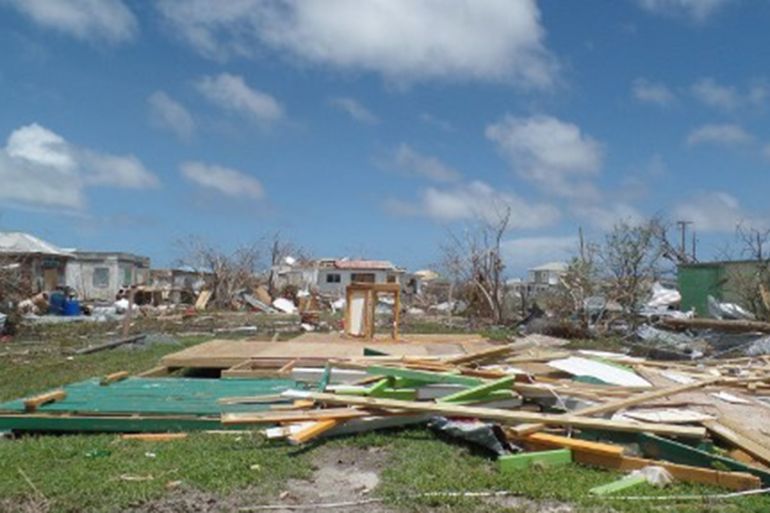Hurricane Jose remains a threat in western Atlantic
This cyclone refuses to die and continues to bring the threat of bad weather to island nations in the western Atlantic.

Overshadowed by Irma, Hurricane Jose now has the Atlantic basin, at least temporarily, all to itself. In doing so, it continues to remain a threat, though hopefully that threat will not be realised to any great extent.
Jose formed after Irma had already begun to wreak havoc on the Caribbean, but it, too, reached hurricane status on September 6.
Keep reading
list of 4 itemsScientists say Oman, UAE deluge ‘most likely’ linked to climate change
Photos: Deadly floods wreak havoc in Kenya’s capital
China evacuates over 100,000 as heavy rain continues to lash south
By September 9, Jose had intensified into a Category 4 hurricane on the five point Saffir-Simpson scale, setting a record for the first time that two hurricanes with sustained winds of at least 250km per hour (km/h) had been recorded in the Atlantic basin.
After Barbuda was devastated by Irma, the island was evacuated in advance of Jose’s arrival.
Despite maintaining its Category 4 status, Jose remained just far enough to the north of the Leeward Islands to not have a major impact.
Now lying around 765km southeast of the southeastern Bahamas and 800km to the south of Bermuda, Jose could persist for the best part of a week.
Fortunately, there is little wind in the upper atmosphere to steer Jose in any particular direction. Indeed winds through the atmosphere are light.
This lack of wind shear is expected to keep Jose going in the coming days.
After Jose passes over its own cold wake in the ocean, it will be able to take advantage of the main cause of these intense hurricanes [along with Hurricane Harvey], namely very warm waters in the western Atlantic.
The sea surface temperatures here are around 29.5C, well above the 26.5C threshold usually required to support hurricane development.
The situation in the Atlantic is now much quieter. There are two disturbances, clusters of thunderstorms, but both stand no more than a 10 percent chance of developing into a tropical depression.